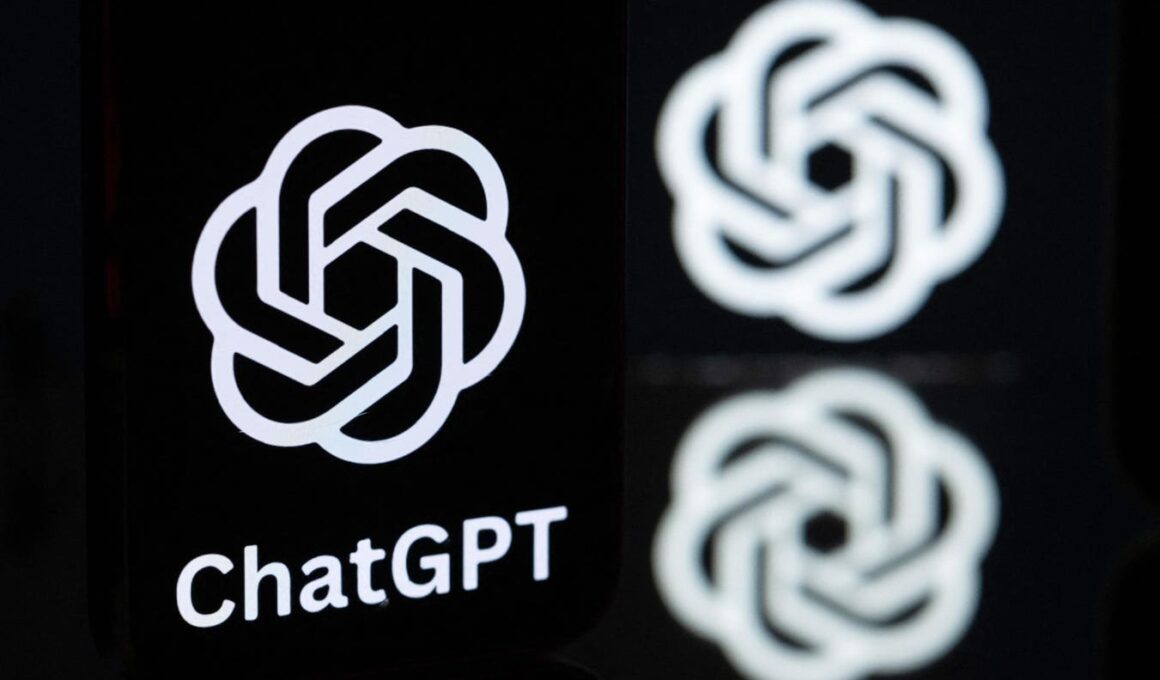Topline
OpenAI removed Iran-linked accounts using ChatGPT to allegedly create bogus social media profiles and fake news articles that attempted to stoke political division in the U.S. online, according to a Friday blog post, marking the latest technology company to identify an Iranian influence operation following similar reports from Microsoft and Google this month.
OpenAI reported the operation Friday. (Photo by SEBASTIEN BOZON/AFP via Getty Images)
Key Facts
OpenAI said it removed a “cluster” of ChatGPT accounts used to create politically divisive content published on Instagram and X, formerly known as Twitter, and on fake liberal and conservative news outlets, the latter of which featured fabricated stories about Vice President Kamala Harris and former President Donald Trump.
The accounts on X posed as liberals and conservatives, making posts generated by ChatGPT after it was asked to rewrite comments posted by other users on social media.
The influence operation produced content about topics such as the U.S. presidential election, the Israel-Hamas conflict and the rights of the U.S. Latino population.
OpenAI noted there was limited engagement with the posts and stories created by the operation, saying there was no evidence real people significantly engaged with or widely shared the fake content.
OpenAI said its investigation benefited from a report published by Microsoft last week that identified Iran-linked groups attempting to hack high-level officials and spread an online disinformation campaign.
Microsoft and OpenAI identified the same group in their reports, Storm-2035, which was characterized by Microsoft as an Iranian network made up of four websites posing as legitimate news outlets that report on presidential candidates, LGBTQ rights and the Israel-Hamas conflict.
Get Forbes Breaking News Text Alerts: We’re launching text message alerts so you’ll always know the biggest stories shaping the day’s headlines. Text “Alerts” to (201) 335-0739 or sign up here.
Key Background
Microsoft researchers said last week the company found evidence that fake news sites have used “AI-enabled services to plagiarize at least some of their content from US publications,” and used other AI tools to enhance web traffic. Microsoft also identified an Iran-linked group called Sefid Flood, which impersonates activist groups to spread doubt about election integrity in the U.S. The disinformation and hacking operations coming out of Iran have also attempted to compromise Trump and President Joe Biden, according to Google. Google said this week an Iran-linked hacking group known as APT42 targeted the presidential campaigns of Trump and Biden with phishing attempts this year. Google’s report was published a day after Trump’s campaign said it was hacked and had its internal communications compromised.
Tangent
News of the hack on Trump’s campaign was broken by Politico, which reported it received emails containing internal campaign documents from an anonymous account. Politico said the documents included a 271-page research document regarding “potential vulnerabilities” on Sen. JD Vance, R-Ohio, which reportedly included information on the Trump campaign’s vetting of Vance before he was selected as Trump’s running mate. Vetting documents on Sen. Marco Rubio, R-Fla., were also sent to Politico, according to the news outlet. The New York Times and The Washington Post were also included in the release of sensitive campaign material, though none of the outlets, including Politico, published the files.
Further Reading
Iran Is Using Hackers And Disinformation To Interfere In US Elections, Microsoft Says (Forbes)
Google Says Iran-Linked Hackers Targeted Trump And Biden Campaigns (Forbes)









